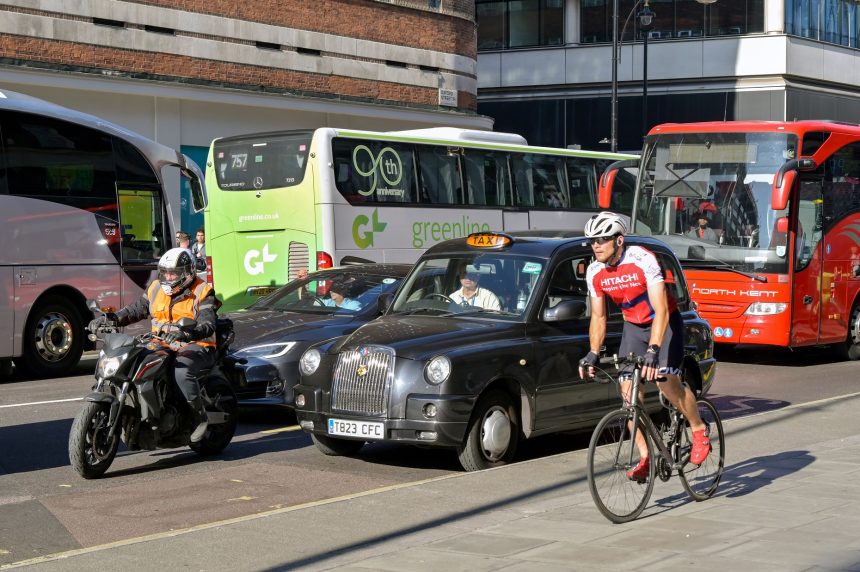Congestion. It does an inordinate amount of damage to coach and bus, and yet no obvious plan exists to do anything about it.
That needs a rapid rethink. Government figures show that bus service reliability in England is at its worst since 2009, despite in some cases vast amounts of extra running time having been added. Coach operators, meanwhile, face worsening city traffic that at its worst – and for London in particular – leaves vehicles struggling to compete with pedestrians on average speed.
Demonstrating the havoc wrought, a bus operator in North West England will shortly retime some journeys that at its extreme turns an afternoon peak trip currently scheduled for 31 minutes into one that is allocated 53 minutes. Congestion is the reason, it says. That one of the towns served is bisected by a railway line with limited road crossings is a complicating factor, but it is not an excuse.
Elsewhere, the coach industry now routinely needs to allocate two drivers to jobs that could before have been done by one. Unpredictable journey times run riot with planning in a landscape that it already constrained on the staffing front, and where many healthy and profitable operators are turning work away for that reason.
Meanwhile, politicians of all persuasions screech about growth while ignoring the many businesses – not just those in the transport sector – that see their ability to deliver it hampered by the amount of unproductive time wasted in traffic.
It is difficult to see what can be done, given the severity and extent of the problem. Nevertheless, vehicles of all classes sit stationary or move at walking pace, baulked by decades of failure to plan for a growing and effective transport system. Filling in potholes will not fix this problem. Nor will money for zero-emission buses, charging infrastructure, or skills bootcamps.
Have trade bodies made this case robustly enough to those with the power to look to change things? Possibly, but more can always be done. Both coach and bus can deliver more with less if vehicles can achieve a higher commercial speed.
Work by local authorities and devolved governments on bus priority is welcome, but it will not be enough. Figures for what congestion costs the economy each year vary, but all are measured in many billions of pounds. A long-term strategy to mitigate it is urgently required. It would need real spending, and creative and collaborative thinking across the board, but it is a growing imperative.



























